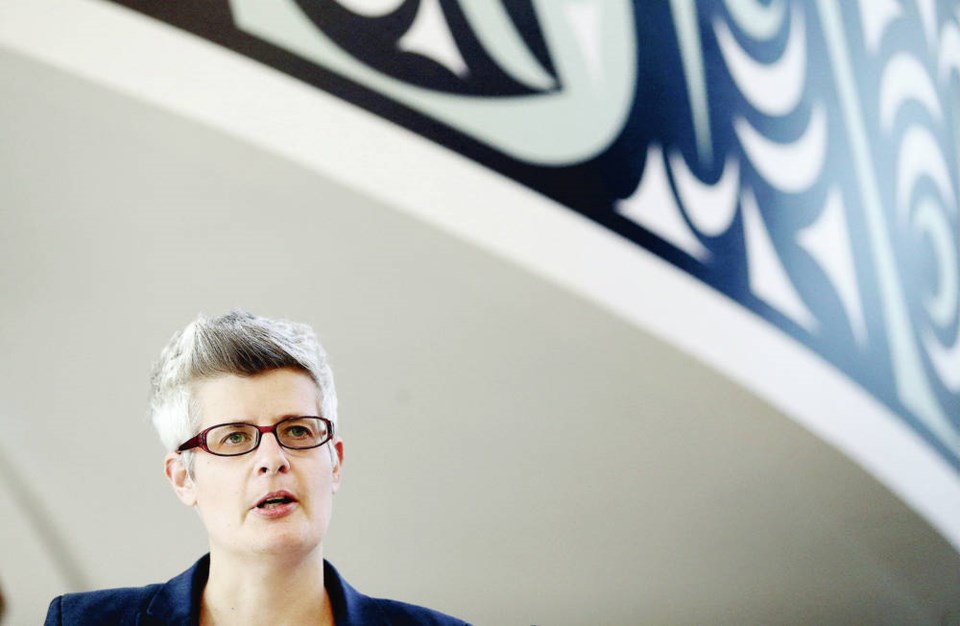A commentary by the mayor of Victoria.
Today marks one year since the World Health Organization declared COVID-19 a global health pandemic. The flag at City Hall is flying at half mast to recognize and mourn the lives that have been lost.
Today is also a moment for reflection: How we came together to fight COVID-19; how our lives have changed; what we’ve lost and what we’ve gained.
It’s also a time to look forward, towards recovery and to what kind of economy we build for the future.
Each of us probably remembers where we were the moment life changed. I was at the Victoria airport on March 11, 2020. I’d checked in and was waiting for my flight to Ottawa for a conference and minister meetings. My phone rang and it was staff at City Hall suggesting I reconsider travelling.
I remember telling the woman at the Air Canada boarding gate that I wouldn’t be on the flight. “You and almost everyone else,” she said. Recognizing me as the mayor, she said: “Good luck to you … good luck to all of us,” with a real sense of foreboding.
It’s much more than luck that has carried us through the last year. It’s the skill, courage and sheer fortitude of those working in our health-care system. They risked their lives to keep us all safe. They showed up for shifts in the early days of the pandemic when so much about the disease was unknown. They tended to the sick and the dying. They are COVID-19 heroes.
So, too, the bus drivers who kept transit running so people could get to work. The grocery-store cashiers and clerks. The teachers who got kids back to school in uncertain conditions. The city workers who kept providing the services we depend on like garbage pickup, street cleaning, running water.
When the world shut down and we were told to stay at home, to work from home, those who couldn’t and didn’t — for the benefit of us all — deserve our deepest thanks.
We did thank them early on, banging pots at 7 p.m. On front porches and in backyards throughout the region, every evening the loud clanging clatter of thanks. That simple act brought us together, lifted our spirits.
But then it stopped, our spirits fizzled, and COVID-19 fatigue began to set in.
Our bubbles started to feel small. We couldn’t go for dinner with a friend, take a trip, enjoy a symphony concert or a play. Sing in our choirs. Attend church in person. Many have lost jobs or had their work hours cut.
The pandemic widened existing cracks in the social safety net, leaving our most vulnerable neighbours in desperate need of housing and support. Our kids’ mental health worries us, and maybe our own mental health does, too. Our small businesses are struggling.
There have been some silver linings. The region’s generosity was evident in the early months of the pandemic when the Times Colonist, Victoria Foundation and Jawl Family Foundation launched the Rapid Relief Fund with the aim of raising $1 million.
In less than two months, contributions small and large totalled $6 million, all of which went directly to non-profits providing services to people hit hard by the pandemic.
The Build Back Victoria initiative last summer showed how quickly council can act and how agile City Hall can be.
Within weeks, dozens of patios and retail “flex spaces” sprung up across the city to create more space for businesses to serve customers. I’ve had a number of business owners tell me that Build Back Victoria is the reason they’re still open.
And I’ve had residents say to me that they’ve never spent as much time or money on Government Street as they did last summer.
Vaccines roll out next week, restrictions will be slowly eased, and life will start to feel normal again. As it does, we’ve got a lot of economic recovery work to do.
Major sectors like tourism have been hit hard and need support. Emerging economic opportunities like the Centre for Ocean Applied Sustainable Technologies need to be nurtured as key recovery projects.
In all sectors, women, youth, Indigenous people, people of colour and low-wage service workers have been disproportionately impacted.
According to the South Island Prosperity Partnership’s Reboot recovery vision, “we must collectively take bold steps to nurture a more inclusive and diversified economy.”
This has been one of the most difficult years in Victoria’s history. And we’ve made it through.
In the coming months, let’s continue to use what we’ve learned during the pandemic — agility, deep collaboration, a can-do spirit — to position our city and our region for the future.



